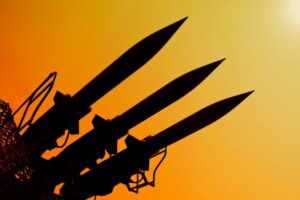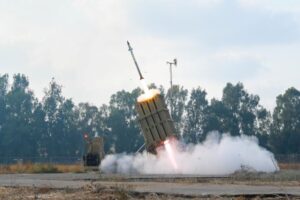Israel vs. Turkey: As tensions grow, Israeli vs. Turkish military power assessment suggests that the IDF is a more effective fighting force.
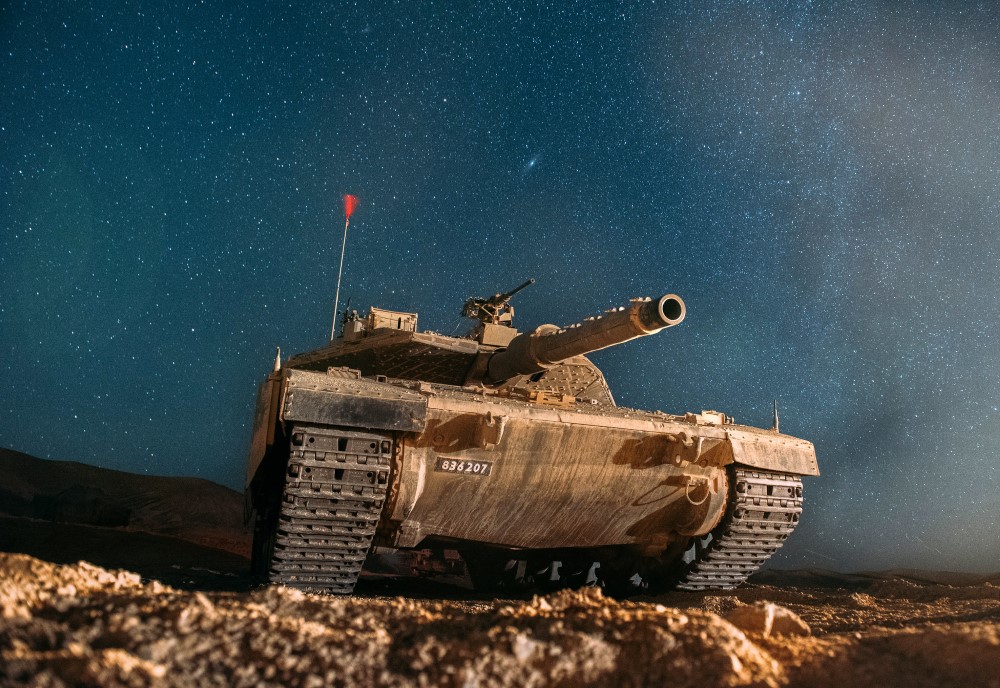
The growing friction between Israel and Turkey increases the likelihood of a conflict between them later this decade. Certainly, both countries have powerful armies that can inflict significant damage on each other.
While Turkey’s military is larger, some prominent weaknesses make it vulnerable to the Israeli army’s superior capabilities. The IDF’s arsenal is more advanced and can deliver massive firepower, but some limitations could pose problems for Israel in the longer term.
So who would win a hypothetical battle pitting the Israeli military vs. Turkey? The following assessment suggests that at this time, the IDF is a more potent force than the Turkish military.
Turkey: military strengths
The Turkish army is a formidable, Western-style military force that possesses some advanced weapons, including US fighter jets and other American arms. Turkey’s Navy in particular is much larger than Israel’s and is being further modernized and upgraded.
Turkey already has a large fleet of warships and submarines, and is building larger frigates as well as a light aircraft carrier. Turkish ships are also equipped with sophisticated US weapons systems. In sum, Turkey is a major naval power and possesses some capabilities that Israel lacks (but doesn’t immediately need given its current threat environment).
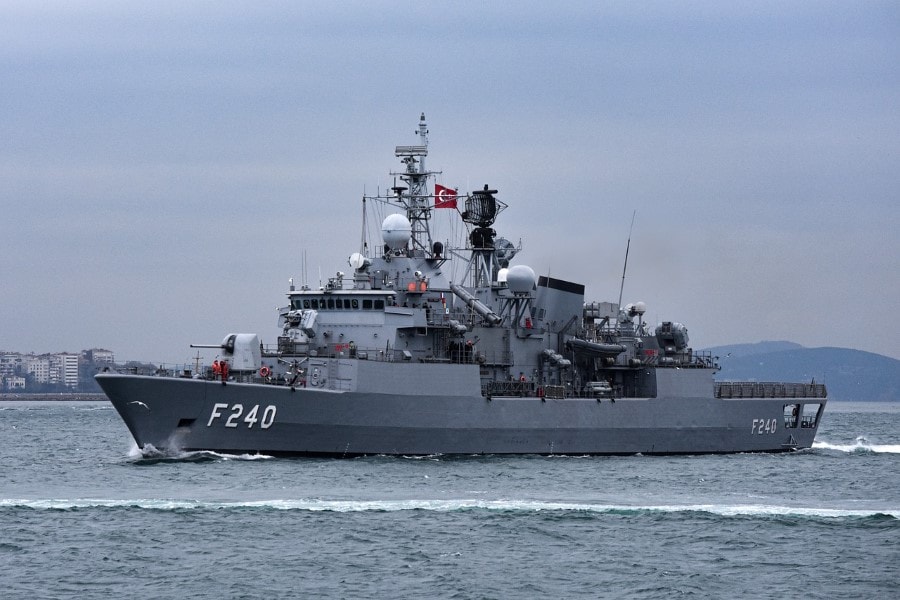
The Tel Aviv-based Institute for National Security Studies (INSS) says that Turkey can present a “significant threat” to Israel given the size of its army and vast spending. Ankara fields the second-largest military in NATO and trains with Western forces. It therefore poses a potentially more serious challenge compared to smaller or more backward Arab forces.
Turkey: military weaknesses
Despite its size and the possession of some advanced military gear, Turkey’s armed forces suffer from some disadvantages. First and foremost, many Turkish weapons systems are subpar and outdated, a recent study by military analyst Kenneth S. Brower noted.
Moreover, Israel’s defense industries in many cases upgraded older Turkish equipment, when ties between the two countries were better. This is a key benefit for Israel, which is closely familiar with Turkey’s capabilities and limitations.
Another drawback for the Turkish military is the quality of its manpower, and particularly its high command. In recent years, the Turks purged many high-ranking officers and reportedly dismissed numerous airmen, Brower wrote.
In addition, the Turkish advantage in size does not extend to air power. Turkey’s and Israel’s air forces are similar in size, but the IDF has a clear technological edge and more combat experience. Turkey’s fighter jets are generally not the latest models, and the US has decided this year to keep Ankara out of the F-35 program.
Overall, Brower estimates that the Turkish army is two or three decades behind the IDF.
Israel: military strengths
The Israeli armed forces wield an impressive array of weapons and military systems. Among other things, the IDF boasts a world-class Air Force armed with numerous precision weapons, modern tanks fitted with innovative protection, and an advanced satellite program.
Israel is also a missile power with vast offensive and defensive capabilities. The IDF’s arsenal includes long-range ballistic missiles and highly effective tactical missiles, such as the Tamuz (known as Spike NLOS abroad).
Moreover, Israel’s multi-layered air defenses are believed to be the best in the world. Just recently, the Defense Ministry delivered a first battery of its Iron Dome system to the US military. Earlier this year, Israel launched a satellite that can cover any point in the Middle East every 24 hours.
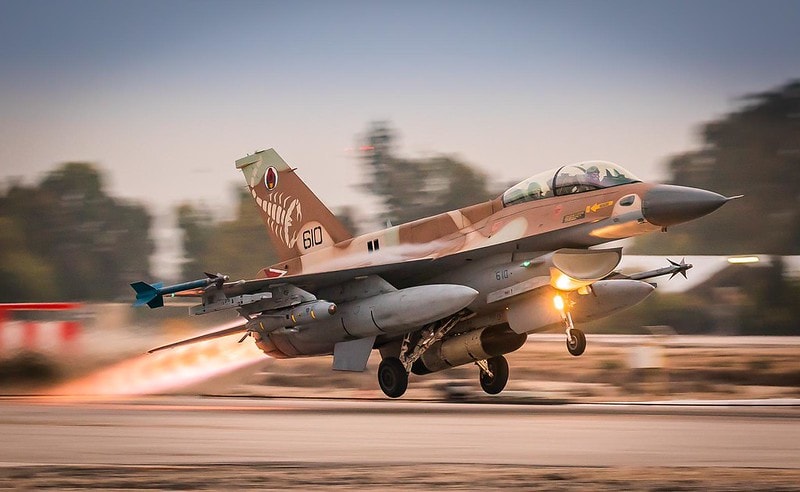
Brower says that the IDF’s edge is especially pronounced in the air. According to estimates, the IDF has the air power to hit thousands of targets a day. The Air Force already deploys F-35i jets, which Israel upgraded with local technology. The stealth fighters can carry 8.1 tons of missiles and bombs and deliver them to a range of 2,200 kilometers.
Overall, the Israel Air Force can generate more daily strike operations than any other country or international coalition, Brower wrote.
Israel: military weaknesses
The IDF is a powerful army but it faces some limits. As Israel’s population is relatively small, the military draws on a limited pool of recruits. Moreover, the IDF in recent decades made deep cuts to its order of battle due to a changing threat environment and budgetary priorities.
As part of the streamlining efforts, the IDF substantially cut its armored and artillery corps while diverting resources elsewhere. Brower estimates that by 2030, the IDF’s maneuver brigades will decline by over 25% from their peak numbers. While the Air Force retains its priority status, it also implemented some reductions.
Brower and other experts also point to Israel’s exaggerated focus on counter-terror and urban warfare operations. While dealing with terror threats is an important priority for Israelis, it undermines the IDF’s readiness for large-scale wars.
The need for a continuous security presence to counter terrorists and guerrilla forces reduces the time available for training. Moreover, limited warfare also limits the experience of IDF field units and elite combat troops.
Finally, some observers are raising questions about the IDF’s organizational culture, war readiness, and ability to counter a major missile assault by Iran and its proxies.
Israel vs. Turkey: Future outlook
Most of the IDF’s weak spots are less relevant for potential conflict with the Turkish army at this time. Any military friction in the near future will likely not include ground maneuvers, as Israel and Turkey do not share a border.
Limited friction in the air and sea will favor the IDF, which holds a decisive edge in air power. While Turkey’s naval force is significantly larger, Israel’s Navy is modern and well equipped, and will be supported by advanced aircraft and submarines.
However, IDF superiority may erode to some extent in the longer term. Turkey’s drive to boost its defense industries will modernize its military and equip it with new vessels, attack helicopters and more drones. Turkey may not achieve its aims in full as it struggles economically, but Ankara is determined to boost its military power and regional standing.
More generally, Israel’s rivals will likely acquire over time the advanced technologies that currently are exclusive to the IDF.
Wildcard: Turkish-led coalition
A problematic future scenario for Israel is a Turkish assault as part of a regional coalition. A large axis could exploit the IDF’s manpower limits and inability to dramatically increase its combat forces. An alliance with Arab states will also offer Turkey more immediate access to Israel’s borders.
A recent INSS study concluded that the likelihood of a regional anti-Israel alliance taking shape is low. However, other analysts warn that unexpected developments, such as regime changes in Egypt or Jordan, could rapidly alter the strategic landscape.
For now, there are enough restraining factors in place to prevent an all-out Turkish-Israeli clash. These include Turkey’s unstable economic situation, its ties with NATO and the US, and Israel’s relative military superiority. However, continued friction and conflicting objectives are expected to increase the risk of confrontation in the coming years.

